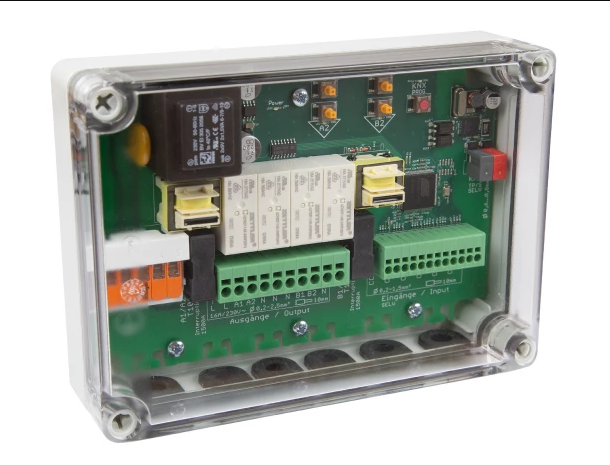In buildings automated with KNX, different actuator types are needed to control switchable and dimmable loads, motors and valves. Universal actuators create flexibility in planning and implementation. They are suitable for switching devices such as electric lights or fans, but can also control drives for blinds, shutters, awnings or windows.
The KNX S2-B6-AP from Elektronik has four multifunctional contacts. Each contact can be used individually to switch loads. The maximum switching load/switching current is limited to 8 A. However, the contacts can also be used in pairs to control 230 V drives.
The determination of whether individual contacts or a drive channel is configured for each contact pair in the KNX application software of the universal actuator. The device then provides the appropriate settings. For the switching function, these are, for example, switching delays or a staircase lighting timer. For shading, safety-relevant queries for locks, movement restrictions and priorities of commands are set first. Then the sunshade automation, including slat tracking, is adjusted. For windows, there is an automatic ventilation system to keep the temperature and humidity optimal. Movement positions for different scenes can also be set.
In addition, the actuator has six binary inputs. They are intended, for example, for local push-buttons for manual operation of a shading system. In the "actuator push-button" configuration, the input and output are directly connected in the actuator. When configured as a "bus push button", the input signal is sent to the bus as a communication object. Each input can then be set up as a (toggle) switch, for controlling drives or scenes, for dimming, as an 8-bit, temperature or brightness value transmitter. Two of the inputs can alternatively be used for zero position sensors.
The actuator is installed surface-mounted in the interior. Control LEDs and push-buttons are visible under the transparent housing cover. During commissioning, the electrician can use them to test whether and how the actuator reacts to up and down commands.






